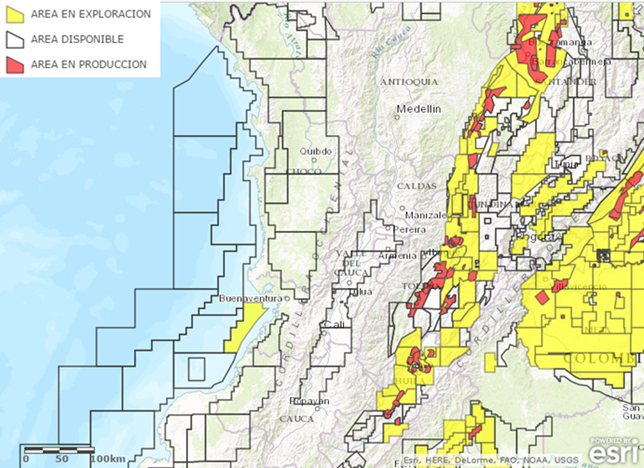Ecopetrol’s president Juan Carlos Echeverry offered a spirited defense of the Cartagena Refinery (Reficar) and its modernization at the recent Congress of the Colombian Natural Gas Association (Naturgas), highlighting that despite the bad press, the project moves forward and is nearly 100% operational.

The president of the National Hydrocarbons Agency Mauricio de la Mora said that the entity is working to tender an offer of “multi-client” seismic activity to boost activity not just in Caribbean waters, but also in the waters of the Pacific.
A recent report from the Chamber of Oil Goods and Services (Campetrol) calls attention to the fact only one of every four drills in Colombia were in use in Colombia, and urged the government to do more to stimulate exploration.
A letter submitted to congress from the Finance Ministry (MinHacienda) detailing the government’s stake in Ecopetrol (NYSE:EC) and another 29 state owned firms sparked alarms form the recently launched “United for Ecopetrol” as proof the government plans to privatize the NOC. The ministry said it is a routine and legally mandated letter submitted each year.
The Inspector General Alejandro Ordóñez said that his office will start a disciplinary investigation into officials involved in the shortage of electrical energy and natural gas.
The amount of Foreign Direct Investment (FDI) has fallen with oil and mineral prices, but data from the central bank suggests that other sectors have been able to increase their share and volume of investment.
The number of registered patents in Colombia, an area where it has led many other regional producers, has fallen off since the start of the oil price crisis. The Chamber of Oil Goods and Services (Campetrol) warns that this will make the country less competitive in the near future.
During a three hour meeting in the presidential Palace, the Colombian Petroleum Association (ACP) presented a series of measures to President Juan Manuel Santos, which would lighten the fiscal load on the industry and review transportation costs, to boost the oil & gas industry.
The 19th Congress of the Colombian Natural Gas Association (Naturgas) provided the venue for a debate on the future of the natural gas industry and gas supply, with Naturgas assuring current problems are not a larger trend, while the Colombian Petroleum Association brought up concerns on Colombia’s self-sufficiency.
When President Juan Manuel Santos chooses a new Minister of Mines and Energy (MinMinas), they will not be arriving to a clean slate, and will be obligated to hit the ground running to deal with short term emergencies and longer term structural changes.